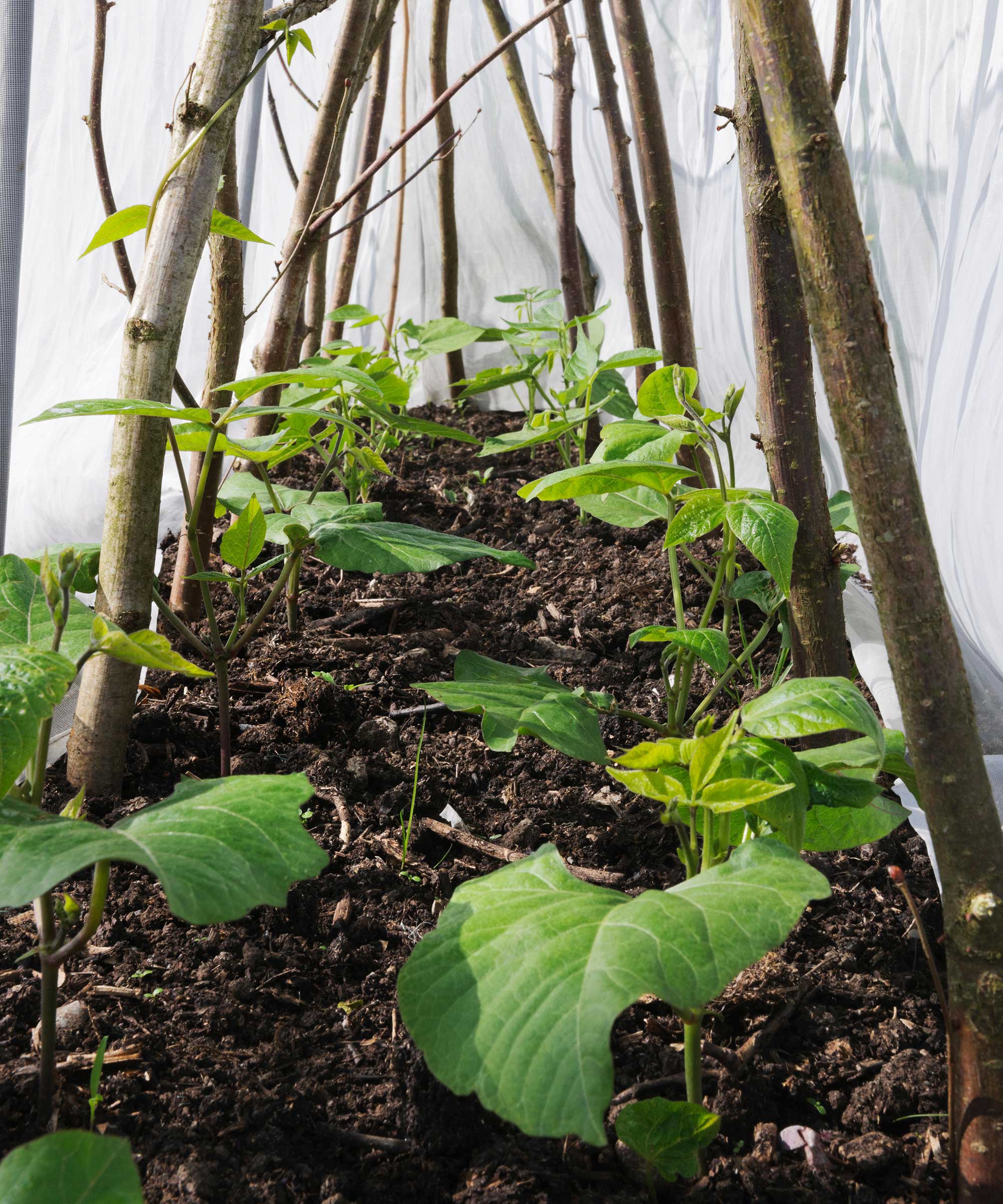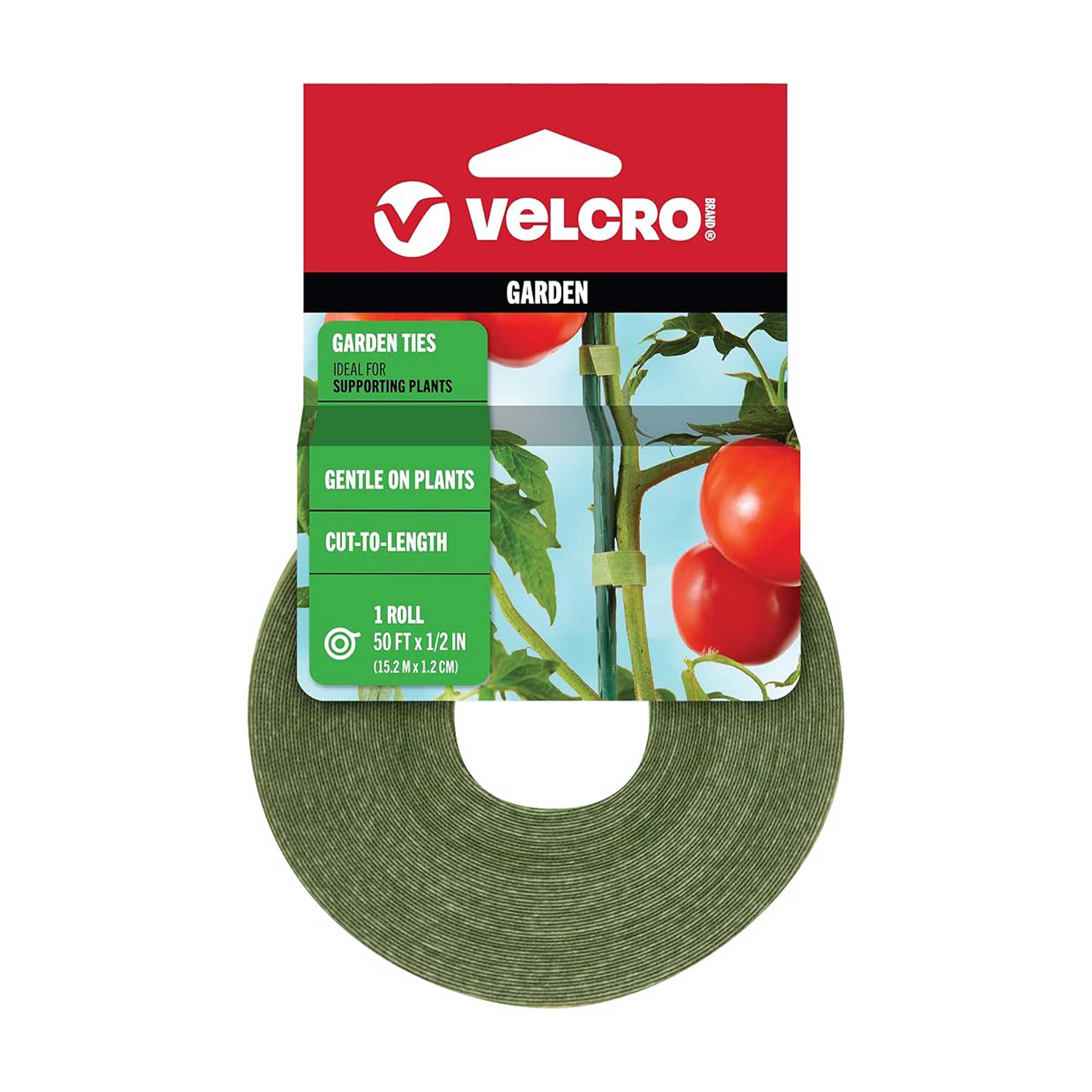
On blustery days, the temperature outdoors often feels colder than it actually is. This is because wind blows away the layer of insulating warmth generated by our bodies, and the faster the wind, the quicker the heat is removed.
Unlike humans and animals, plants generally don’t create their own heat (excluding the unusual thermogenic plants). This means that wind chill, per se, doesn’t affect them. However, the wind can still have its disadvantages for our leafy friends, no matter whether it’s cold or hot.
Sure, some plants are better suited to breezy conditions – our list of wind-resistant shrubs has plenty of options, for instance. But problems such as wind rock, rapid water loss, and even breakage can all arise. The good news is, there are measures you can take to protect your plants from damage. Below, plant-care experts explain.
How wind can affect your plants

Firstly, strong winds can tear leaves, break stems, and even pull out plants along with their roots, highlights Nastya Vasylchyshyna, a resident botany expert at Plantum. Young plants with undeveloped root systems, tall plants, and weak trees are particularly susceptible, she adds.
Strong winds also affect transpiration, she points out. ‘They accelerate water evaporation, leading to dehydration, shriveling, and wilting of the leaves. In severe cases, it causes branches (or even the entire plant) to dry out and die.’
It’s important to note that moisture loss can result from cold winds as well as warm ones. ‘Cold, dry winds are most damaging during the winter on evergreen plants like hollies and boxwoods,’ warns Amy Enfield, senior horticulturist at Scotts-MiracleGro. ‘Since the ground is frozen, the plants are unable to replace the lost moisture, leading to desiccated (brown), damaged, or dead foliage.’
Nastya also says that strong winds can lead to soil erosion, ‘which diminishes soil fertility and slows down (or even stops) plant development. It also exposes roots, which weakens plants.’ Amy adds, ‘In sandy areas, strong winds can pick up sand particles and essentially “sandblast” plants, resulting in shredded leaves or tiny abrasions which are more susceptible to pest and disease infestation.’
How to protect your plants from wind

There are ways to enclose a windy area of your yard to help keep your plants protected. Nastya suggests densely planting rows of sturdy trees or shrubs to act as a windbreak. ‘Select hardy species that can withstand both strong winds and dry weather.'
You can also give vulnerable plants a bit of extra support. For instance, Nastya recommends planting more fragile species along fences or buildings on your property. ‘Ideally, the fence or any other wind barrier should be partially permeable to avoid shaking.’ Sturdy poles can be attached to tall plants, she adds –’just make sure to drive the poles deep into the ground. As for young plants, secure them to stakes, nets, or other types of support.’
She also recommends covering young saplings and seedlings with a cloth to protect them from hot and cold winds. ‘The cover should be light-colored and breathable so that the plants don’t get overheated. Apart from wind protection, it’ll also provide partial shade and help retain water during hot weather.’ Naturally, it will also provide a layer of insulation on colder days. These plant covers from Amazon are very well-rated if you need to buy some. Be sure to weigh or stake them down so that they don't blow away.
Finally, mulching will help avoid soil erosion and protect plants from dehydration, Nastya says. Of course, watering your outdoor plants properly as and when needed is also essential to keep them healthy.
Top tip: Consider moving plants in containers to a more sheltered location on windy days. ‘That could be a garage, porch, or covered patio,' suggests Amy.

Secure your plants to supports using these reusable and weather-resistant ties made from 65% recycled plastic.
Does wind have any benefits for plants?
A bit of wind isn’t all bad when it comes to our plants. For instance, Nastya highlights how many species wouldn’t be able to reproduce without it. ‘The process of seed dispersal by wind, also known as anemochory, allows plants to populate new areas.’ Wind also assists in pollination for many plants, too, which is one of the reasons why greenhouse plants sometimes need pollinating by hand.
Perhaps surprisingly, wind can also encourage plants to grow better. ‘When plants experience gentle movement, they develop thicker, sturdier stems as a natural response, reducing the likelihood of breakage in the future,’ explains Amy. Exposure to wind also causes plants to establish deeper root systems to help them stay anchored in the soil, she adds.
There’s also its benefit in protecting plants against pests, ‘as the wind blows off insects and prevents them from attaching to the plant,’ Nastya says. What’s more, she also notes that wind can reduce the risk of certain fungal diseases by maintaining good air circulation in dense crowns and controlling humidity.
FAQs
Which is worse for plants, cold wind or hot wind?
While both cold and hot winds can damage plants, Nastya considers the latter as more dangerous. ‘Hot winds lead to rapid water loss in the soil and in the plant tissue, leaf burns, foliage loss, poor photosynthesis, and, as a result, stunted growth. Combine hot wind, water loss, and intense sunlight, and you’ll witness severe sunburn.’
I’ve seen this first-hand on my balcony here in Australia; the windy conditions, bright sunshine, and sweltering temps have caused more of my plants to struggle than I’d like to admit!
If you’re worried about inclement winter weather affecting your backyard plants in other ways, our guides on protecting plants from heavy rain and whether you should remove snow from plants will also come in handy.







